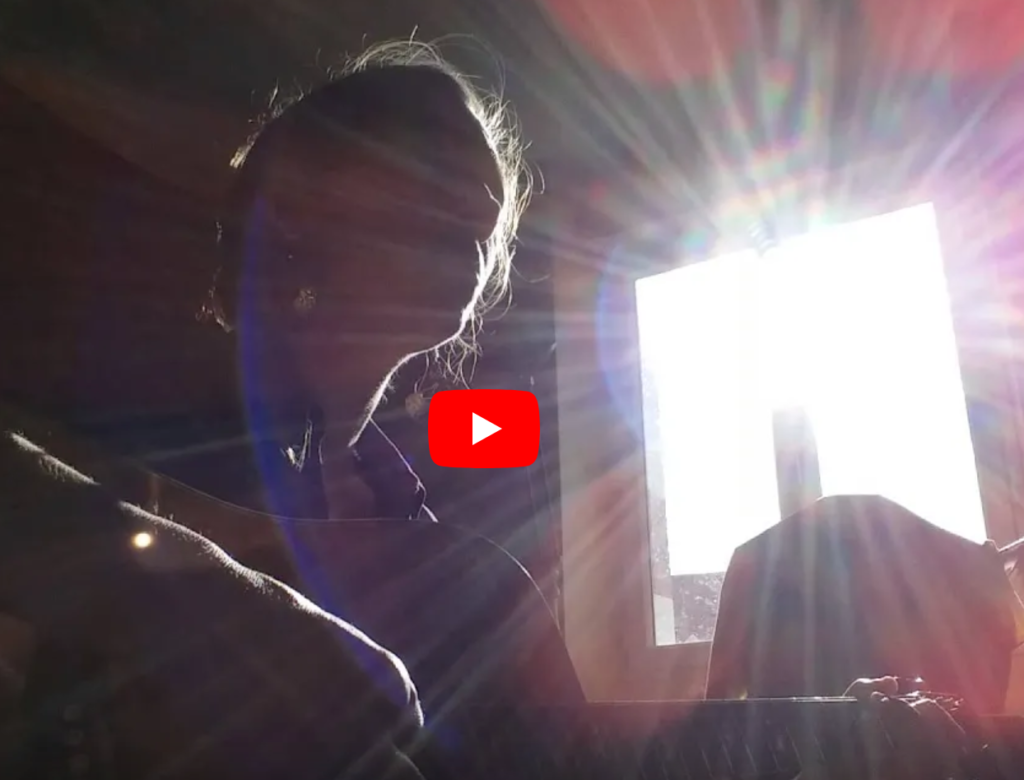How’s this for a quintessential dream in the year 2020?
My family and I are on zoom with our pastor, a white-haired lesbian whom I adore. In the middle of our serious pastoral visit, Paula’s teenage son interrupts with some wry comment about our current political climate. He means to elicit laughs but also exposes a profound cynicism and despair. I’m struck by how even teenagers mess with parents’ attempts to work from home. How many zoom meetings have featured my daughter’s demand for attention?!
Paula takes this very seriously. She abruptly turns away from us, removes her guitar from its case, and begins singing a folk song. Her attention is so fiercely directed to her son, she forgets we’re still there, watching from the screen.
My family knows this song. The words lift us out of our culture’s tit-for-tat, reactive, short-sighted discourse into a broader worldview, one that uplifts humanity’s potential for good and sees this time of struggle as one moment in the immense sweep of evolutionary history. Then I see what Paula is doing. Her conversation with us isn’t nearly as important as responding to her son—not to his interruption but to his despair. In tending him, she also tends us. My whole family feels lighter for watching this loving exchange. We sing along. Afterward we laugh about how Paula forgot us.
Most night dreams are deeply personal but the themes of this one—relationships mediated by screens, work interrupted, pervasive despair—are ubiquitous today, so I offer it as a metaphor that may speak to many of us. The pastor completely forgot she was in the middle of a work conversation, a fact that struck me in the dream (and still strikes me) as funny but also wise. Whatever we were discussing, it wasn’t nearly as pressing as her child’s hopelessness, and this she addressed with music, with a worldview expansive enough to embrace today’s suffering along with its goodness, and with her complete attention. Instead of focusing her ministry stubbornly outward, toward us and her professional obligations as she clearly intended and as we were expecting, she turned it inward, toward her son. Still, we received the benefits. Her parenting inadvertently sent ripples over cyberspace into our hearts.
The crises of our times are overwhelming. And Covid has tied our hands; we can’t offer solutions the way we’d like to, the way we know is most effective—in person, together. My dream tells me to trust deeply in work we can do at home, alone and within our families. We can prioritize the intimacy between hearts. We can counter despair with music. We can zoom out to a bigger, more loving perspective. And we can lean on invisible cables of light to carry this work where it needs to go.
Emily and I frequently sing an old Bob Franke folk song called “Thanksgiving Eve.” (Here’s a nice version sung by Julie Lambert.) It’s not the song my pastor plucked out in the dream but it’s in a similar spirit, calling us out of our smallness:
It’s so easy to dream of the days gone by,
it’s hard to think of the times to come.
But the grace to accept every moment as a gift
is a gift that is given to some.
What can you do with your days but work and hope
That your dreams bind your work to your play?
What can you do with each moment of your life
but love ’til you’ve loved it away?
Love ’til you’ve loved it away.
Today I pull out my rusty-stringed guitar and sing this for you.
--Elizabeth Jarrett Andrew